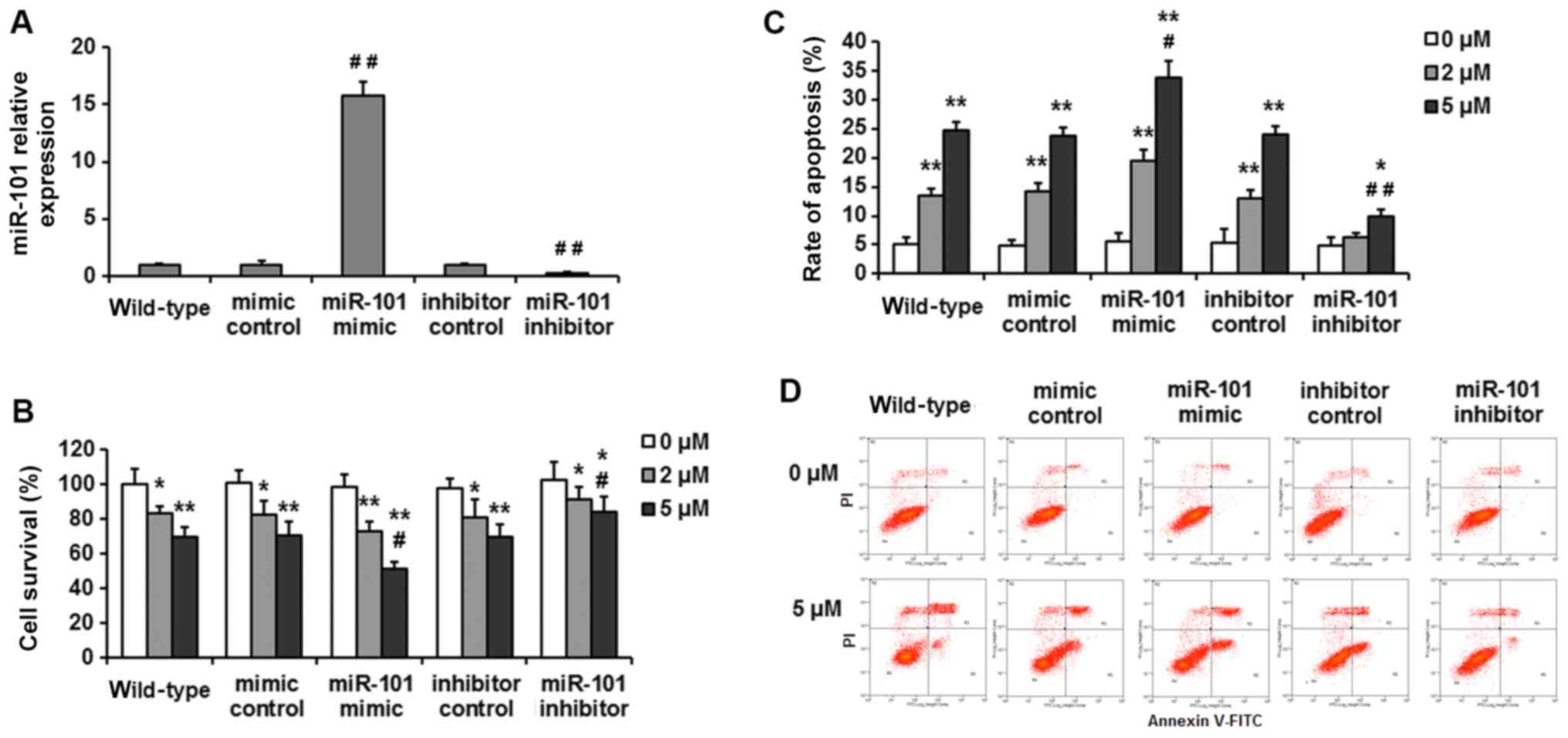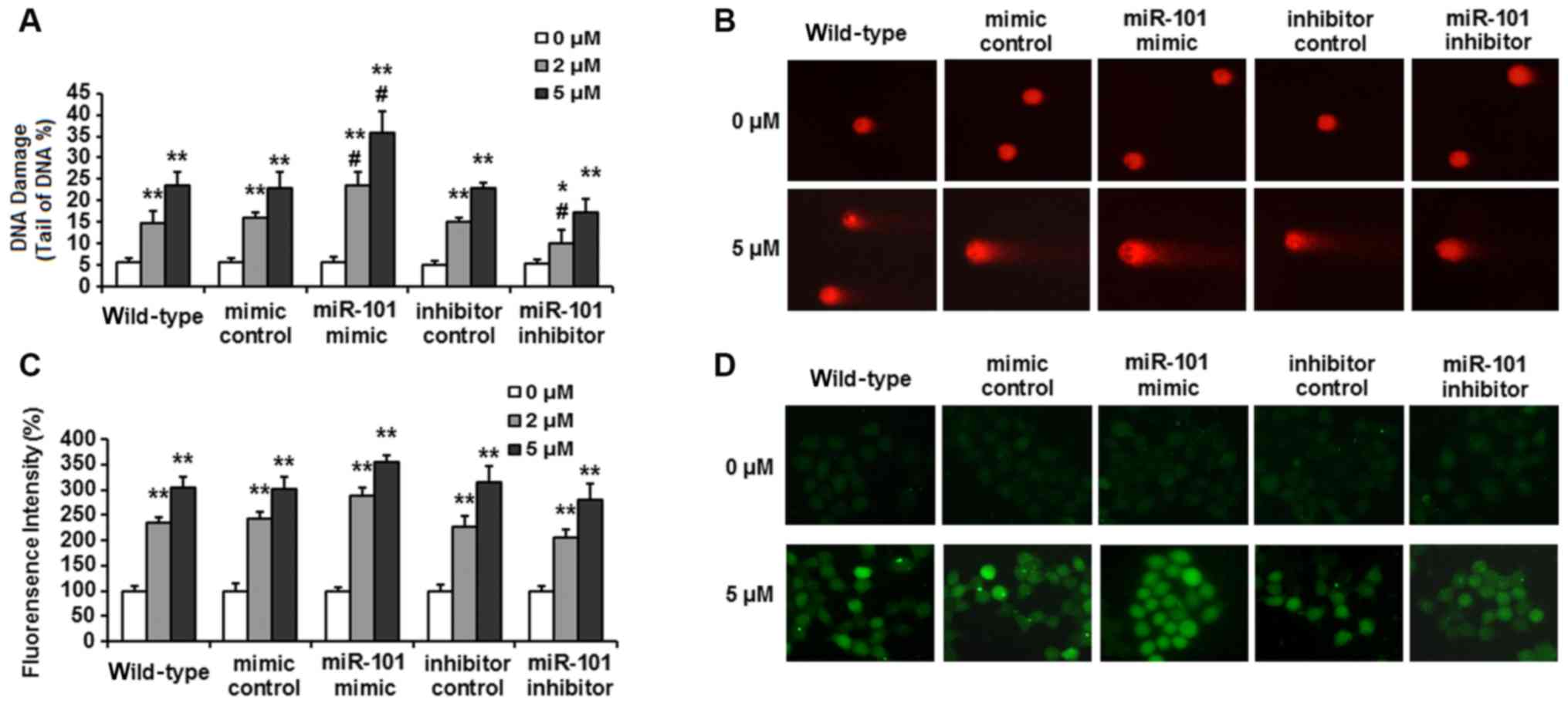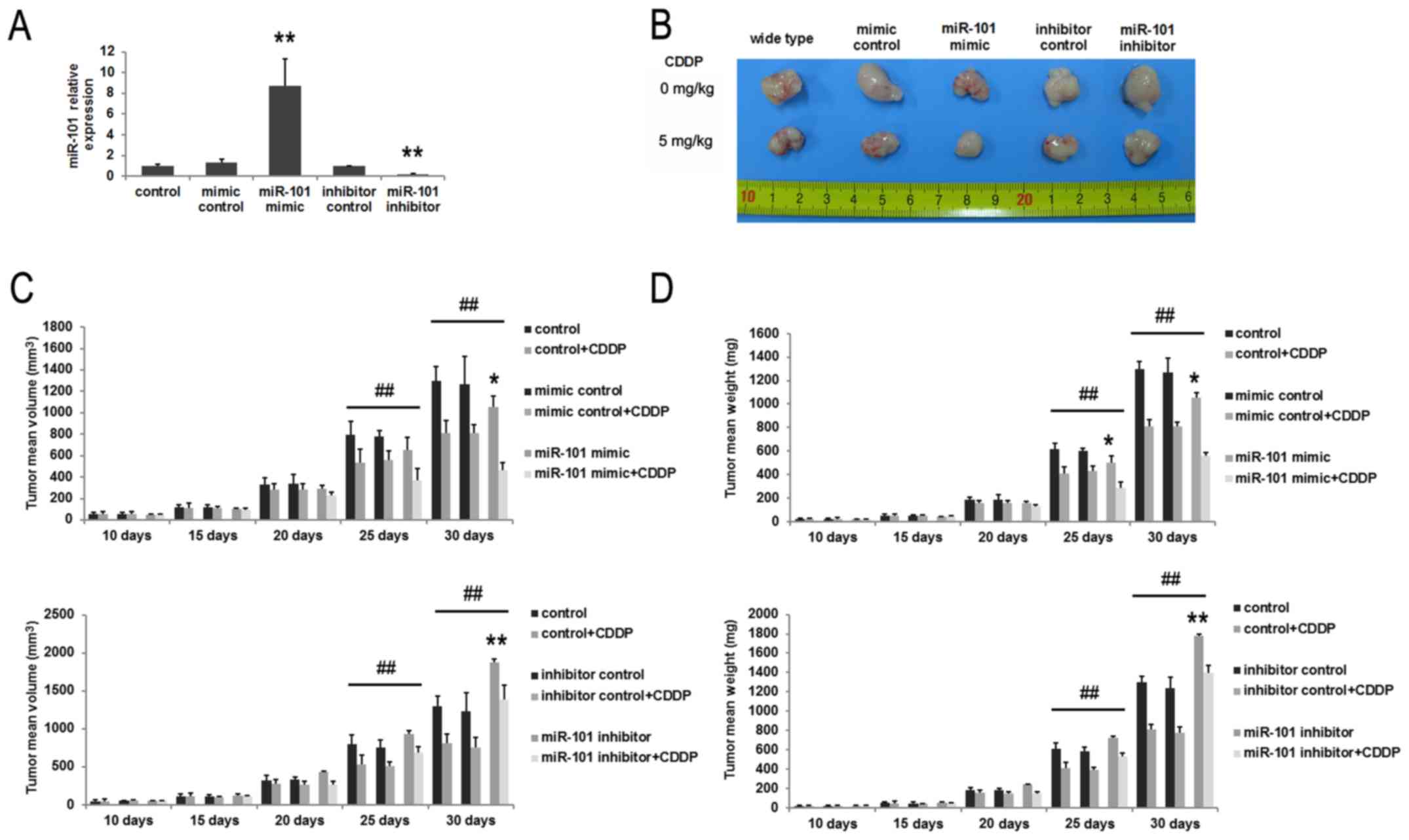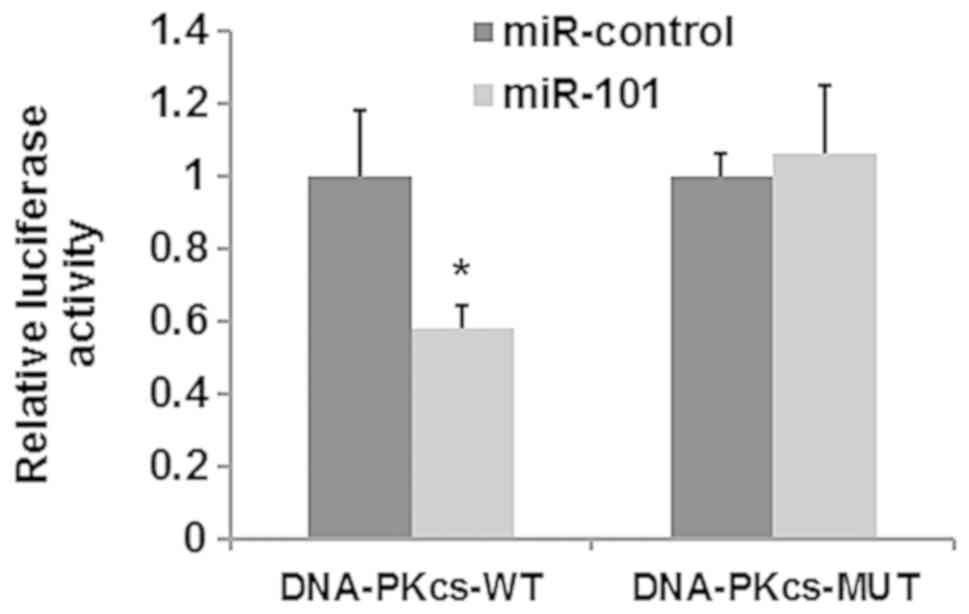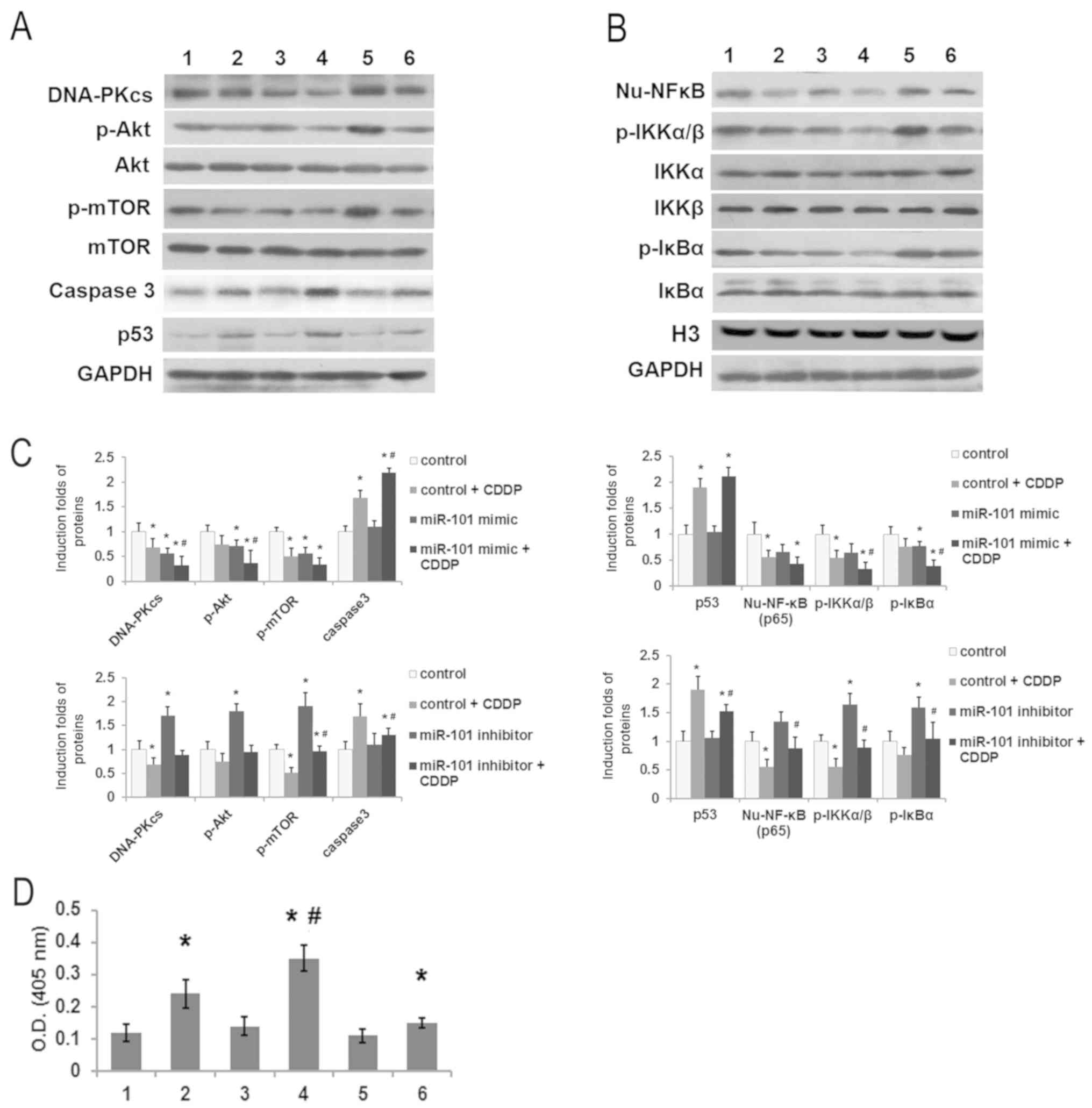|
1
|
Argyrou C, Moris D and Vernadakis S:
Hepatocellular carcinoma development in non-alcoholic fatty liver
disease and non-alcoholic steatohepatitis. Is it going to be the
‘Plague’ of the 21st century? A literature review focusing on
pathogenesis, prevention and treatment. J BUON. 22:6–20.
2017.PubMed/NCBI
|
|
2
|
Llovet JM, Burroughs A and Bruix J:
Hepatocellular carcinoma. Lancet. 362:1907–1917. 2003. View Article : Google Scholar : PubMed/NCBI
|
|
3
|
Lin DY, Lin SM and Liaw YF: Non-surgical
treatment of hepatocellular carcinoma. J Gastroenterol Hepatol.
12:S319–S328. 1997. View Article : Google Scholar : PubMed/NCBI
|
|
4
|
Ueno H, Okada S, Okusaka T, Ikeda M and
Kuriyama H: Phase I and pharmacokinetic study of 5-fluorouracil
administered by 5-day continuous infusion in patients with
hepatocellular carcinoma. Cancer Chemother Pharmacol. 49:155–160.
2002. View Article : Google Scholar : PubMed/NCBI
|
|
5
|
Falkson G, Ryan LM, Johnson LA, Simson IW,
Coetzer BJ, Carbone PP, Creech RH and Schutt AJ: A random phase II
study of mitoxantrone and cisplatin in patients with hepatocellular
carcinoma. An ECOG study. Cancer. 60:2141–2145. 1987. View Article : Google Scholar : PubMed/NCBI
|
|
6
|
Ghosh S: Cisplatin: The first metal based
anticancer drug. Bioorg Chem. 88:1029252019. View Article : Google Scholar : PubMed/NCBI
|
|
7
|
Roos WP, Frohnapfel L, Quiros S, Ringel F
and Kaina B: XRCC3 contributes to temozolomide resistance of
glioblastoma cells by promoting DNA double-strand break repair.
Cancer Lett. 424:119–126. 2018. View Article : Google Scholar : PubMed/NCBI
|
|
8
|
Sirbu BM and Cortez D: DNA damage
response: Three levels of DNA repair regulation. Cold Spring Harb
Perspect Biol. 5:a0127242013. View Article : Google Scholar : PubMed/NCBI
|
|
9
|
Panta GR, Kaur S, Cavin LG, Cortés ML,
Mercurio F, Lothstein L, Sweatman TW, Israel M and Arsura M: ATM
and the catalytic subunit of DNA-dependent protein kinase activate
NF-kappaB through a common MEK/extracellular signal-regulated
kinase/p90(rsk) signaling pathway in response to distinct forms of
DNA damage. Mol Cell Biol. 24:1823–1835. 2004. View Article : Google Scholar : PubMed/NCBI
|
|
10
|
Elliott SL, Crawford C, Mulligan E,
Summerfield G, Newton P, Wallis J, Mainou-Fowler T, Evans P,
Bedwell C, Durkacz BW and Willmore E: Mitoxantrone in combination
with an inhibitor of DNA-dependent protein kinase: A potential
therapy for high risk B-cell chronic lymphocytic leukaemia. Br J
Haematol. 152:61–71. 2011. View Article : Google Scholar : PubMed/NCBI
|
|
11
|
Kim SH, Um JH, Dong-Won B, Kwon BH, Kim
DW, Chung BS and Kang CD: Potentiation of chemosensitivity in
multidrug-resistant human leukemia CEM cells by inhibition of
DNA-dependent protein kinase using wortmannin. Leuk Res.
24:917–925. 2000. View Article : Google Scholar : PubMed/NCBI
|
|
12
|
Bartel DP: MicroRNAs: Genomics,
biogenesis, mechanism, and function. Cell. 116:281–297. 2004.
View Article : Google Scholar : PubMed/NCBI
|
|
13
|
Yan D, Ng WL, Zhang X, Wang P, Zhang Z, Mo
YY, Mao H, Hao C, Olson JJ, Curran WJ and Wang Y: Targeting
DNA-PKcs and ATM with miR-101 sensitizes tumors to radiation. PLoS
One. 5:e113972010. View Article : Google Scholar : PubMed/NCBI
|
|
14
|
Hu H, He Y, Wang Y, Chen W, Hu B and Gu Y:
micorRNA-101 silences DNA-PKcs and sensitizes pancreatic cancer
cells to gemcitabine. Biochem Biophys Res Commun. 483:725–731.
2017. View Article : Google Scholar : PubMed/NCBI
|
|
15
|
Chang Z, Huo L, Li K, Wu Y and Hu Z:
Blocked autophagy by miR-101 enhances osteosarcoma cell
chemosensitivity in vitro. ScientificWorldJournal. 2014:7947562014.
View Article : Google Scholar : PubMed/NCBI
|
|
16
|
Xu Y, An Y, Wang Y, Zhang C, Zhang H,
Huang C, Jiang H, Wang X and Li X: miR-101 inhibits autophagy and
enhances cisplatin-induced apoptosis in hepatocellular carcinoma
cells. Oncol Rep. 29:2019–2024. 2013. View Article : Google Scholar : PubMed/NCBI
|
|
17
|
Livak KJ and Schmittgen TD: Analysis of
relative gene expression data using real-time quantitative PCR and
the 2(-Delta Delta C(T)) method. Methods. 25:402–408. 2001.
View Article : Google Scholar : PubMed/NCBI
|
|
18
|
Tice RR, Agurell E, Anderson D, Burlinson
B, Hartmann A, Kobayashi H, Miyamae Y, Rojas E, Ryu JC and Sasaki
YF: Single cell gel/comet assay: Guidelines for in vitro and in
vivo genetic toxicology testing. Environ Mol Mutagen. 35:206–221.
2000. View Article : Google Scholar : PubMed/NCBI
|
|
19
|
An J, Wang X, Guo P, Zhong Y, Zhang X and
Yu Z: Hexabromocyclododecane and polychlorinated biphenyls increase
resistance of hepatocellular carcinoma cells to cisplatin through
the phosphatidylinositol 3-kinase/protein kinase B pathway. Toxicol
Lett. 229:265–272. 2014. View Article : Google Scholar : PubMed/NCBI
|
|
20
|
Mueller T, Voigt W, Simon H, Fruehauf A,
Bulankin A, Grothey A and Schmoll HJ: Failure of activation of
caspase-9 induces a higher threshold for apoptosis and cisplatin
resistance in testicular cancer. Cancer Res. 63:513–521.
2003.PubMed/NCBI
|
|
21
|
Okouoyo S, Herzer K, Ucur E, Mattern J,
Krammer PH, Debatin KM and Herr I: Rescue of death receptor and
mitochondrial apoptosis signaling in resistant human NSCLC in vivo.
Int J Cancer. 108:580–587. 2004. View Article : Google Scholar : PubMed/NCBI
|
|
22
|
Yamaguchi T, Nakajima N, Nakamura I,
Mashiba H, Kawashiro T, Ebara K, Ichimura E, Nishimura C, Okamoto
K, Ichikawa Y and Ichida T: Preclinical anticancer effects and
toxicologic assessment of hepatic artery infusion of fine-powder
cisplatin with lipiodol in vivo. Drug Discov Ther. 7:201–208.
2013.PubMed/NCBI
|
|
23
|
Ellis PA, Norman A, Hill A, O'Brien ME,
Nicolson M, Hickish T and Cunningham D: Epirubicin, cisplatin and
infusional 5-fluorouracil (5-FU) (ECF) in hepatobiliary tumours.
Eur J Cancer 31A. 1594–1598. 1995. View Article : Google Scholar
|
|
24
|
Pruefer FG, Lizarraga F, Maldonado V and
Melendez-Zajgla J: Participation of Omi Htra2 serine-protease
activity in the apoptosis induced by cisplatin on SW480 colon
cancer cells. J Chemother. 20:348–354. 2008. View Article : Google Scholar : PubMed/NCBI
|
|
25
|
Stordal B and Davey M: Understanding
cisplatin resistance using cellular models. IUBMB Life. 59:696–699.
2007. View Article : Google Scholar : PubMed/NCBI
|
|
26
|
Callegari E, Gramantieri L, Domenicali M,
D'Abundo L, Sabbioni S and Negrini M: MicroRNAs in liver cancer: A
model for investigating pathogenesis and novel therapeutic
approaches. Cell Death Differ. 22:46–57. 2015. View Article : Google Scholar : PubMed/NCBI
|
|
27
|
Lan H, Lu H, Wang X and Jin H: MicroRNAs
as potential biomarkers in cancer: Opportunities and challenges.
Biomed Res Int. 2015:1250942015. View Article : Google Scholar : PubMed/NCBI
|
|
28
|
Zhang K, Chen J, Zhou H, Chen Y, Zhi Y,
Zhang B, Chen L, Chu X, Wang R and Zhang C: PU.1/microRNA-142-3p
targets ATG5/ATG16L1 to inactivate autophagy and sensitize
hepatocellular carcinoma cells to sorafenib. Cell Death Dis.
9:3122018. View Article : Google Scholar : PubMed/NCBI
|
|
29
|
Shao P, Qu WK, Wang CY, Tian Y, Ye ML, Sun
DG, Sui JD, Wang LM, Fan R and Gao ZM: MicroRNA-205-5p regulates
the chemotherapeutic resistance of hepatocellular carcinoma cells
by targeting PTEN/JNK/ANXA3 pathway. Am J Transl Res. 9:4300–4307.
2017.PubMed/NCBI
|
|
30
|
He H, Tian W, Chen H and Deng Y:
MicroRNA-101 sensitizes hepatocellular carcinoma cells to
doxorubicin-induced apoptosis via targeting Mcl-1. Mol Med Rep.
13:1923–1929. 2016. View Article : Google Scholar : PubMed/NCBI
|
|
31
|
Grandage VL, Gale RE, Linch DC and Khwaja
A: PI3-kinase/Akt is constitutively active in primary acute myeloid
leukaemia cells and regulates survival and chemoresistance via
NF-kappaB, Mapkinase and p53 pathways. Leukemia. 19:586–594. 2005.
View Article : Google Scholar : PubMed/NCBI
|
|
32
|
Pellegrino R, Calvisi DF, Neumann O,
Kolluru V, Wesely J, Chen X, Wang C, Wuestefeld T, Ladu S, Elgohary
N, et al: EEF1A2 inactivates p53 by way of PI3K/AKT/mTOR-dependent
stabilization of MDM4 in hepatocellular carcinoma. Hepatology.
59:1886–1899. 2014. View Article : Google Scholar : PubMed/NCBI
|
|
33
|
Fang Y, Chai Z, Wang D, Kuang T, Wu W and
Lou W: DNA-PKcs deficiency sensitizes the human hepatoma HepG2
cells to cisplatin and 5-fluorouracil through suppression of the
PI3K/Akt/NF-κB pathway. Mol Cell Biochem. 399:269–278. 2015.
View Article : Google Scholar : PubMed/NCBI
|
|
34
|
Birbach A, Gold P, Binder BR, Hofer E, de
Martin R and Schmid JA: Signaling molecules of the NF-kappa B
pathway shuttle constitutively between cytoplasm and nucleus. J
Biol Chem. 277:10842–10851. 2002. View Article : Google Scholar : PubMed/NCBI
|
|
35
|
Erstad DJ and Cusack JC Jr: Targeting the
NF-κB pathway in cancer therapy. Surg Oncol Clin N Am. 22:705–746.
2013. View Article : Google Scholar : PubMed/NCBI
|
|
36
|
Chen Q, Jin M, Yang F, Zhu J, Xiao Q and
Zhang L: Matrix metalloproteinases: Inflammatory regulators of cell
behaviors in vascular formation and remodeling. Mediators Inflamm.
2013:9283152013. View Article : Google Scholar : PubMed/NCBI
|
|
37
|
Ito Y, Kikuchi E, Tanaka N, Kosaka T,
Suzuki E, Mizuno R, Shinojima T, Miyajima A, Umezawa K and Oya M:
Down-regulation of NF kappa B activation is an effective
therapeutic modality in acquired platinum-resistant bladder cancer.
BMC Cancer. 15:3242015. View Article : Google Scholar : PubMed/NCBI
|















